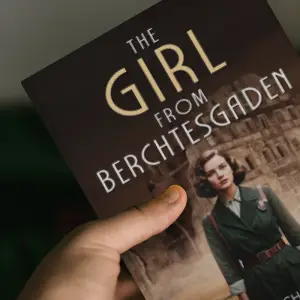Discovering the Heart of War: A Review of Gods and Generals
When I stumbled across Gods and Generals: A Novel of the Civil War by Jeff Shaara, it felt like fate. As someone deeply fascinated by American history, particularly the tumultuous era of the Civil War, I was drawn to the book knowing it’s the acclaimed prequel to the Pulitzer Prize-winning The Killer Angels. Little did I know, this novel would not just educate me on historical events, but also immerse me emotionally in the minds and lives of iconic figures like Thomas “Stonewall” Jackson and Joshua Chamberlain.
Right from the first pages, Shaara’s brilliant narrative pulls you in, blending historical fact with rich, character-driven storytelling. Through the perspectives of figures like Robert E. Lee, Winfield Scott Hancock, and others, the novel draws a vivid portrait of a nation on the brink of fracture. What I found particularly striking was how Shaara humanizes these renowned leaders. For instance, Jackson is captured not just as a general but a man wrestling with his faith and convictions, struggling under the weight of conflict. The tension between personal beliefs and the larger forces of war resonated with me; it reminded me that history isn’t merely a timeline of events but a collection of deeply personal stories.
One of the highlights of Shaara’s writing style is his ability to fluctuate between introspection and action-packed dialogue. The pacing starts off almost methodically, echoing the slow build of conflict, but quickly accelerates as battles unfold. I found myself holding my breath during the tense moments, feeling as if I were right there on the battlefield. A note from a fellow reader encapsulated this sentiment perfectly: “Shaara makes you feel as if you’re there.”
The character development in Gods and Generals is another area where the novel truly shines. Each leader’s motivations and struggles are portrayed with depth, making it hard not to empathize with their situations, even those on opposing sides. Readers may find themselves conflicted, rooting for generals whose ideologies differ significantly from their own. The multitudes of moral shades are expressed succinctly when one character states that they fight “not for a blind rage to dominate or control,” which rings true throughout the narrative.
As the plot builds toward key moments leading into the civil war, I couldn’t help but feel the weight of history pressing down on every decision made. The frustrating setbacks faced by Hancock, and the seemingly unstoppable advance of Lee’s forces, depicted how the war was shaped not just by strategy but by humanity’s flaws and virtues.
In conclusion, Gods and Generals is more than just a historical novel; it is a poignant exploration of the human experience amidst chaos. I would highly recommend this book to anyone interested in history, especially readers looking to understand the complexities of the Civil War era through a rich narrative lens. Shaara’s ability to breathe life into historical figures has left a lasting impact on me, prompting reflections on the battles—not just those fought on the ground but within each soul during this tragic chapter of American history. If you, too, find yourself drawn to tales of courage, conflict, and the quest for honor, dive into this beautifully crafted homage to a divided nation.
You can find Gods and Generals: A Novel of the Civil War (Civil War Trilogy) here >>






